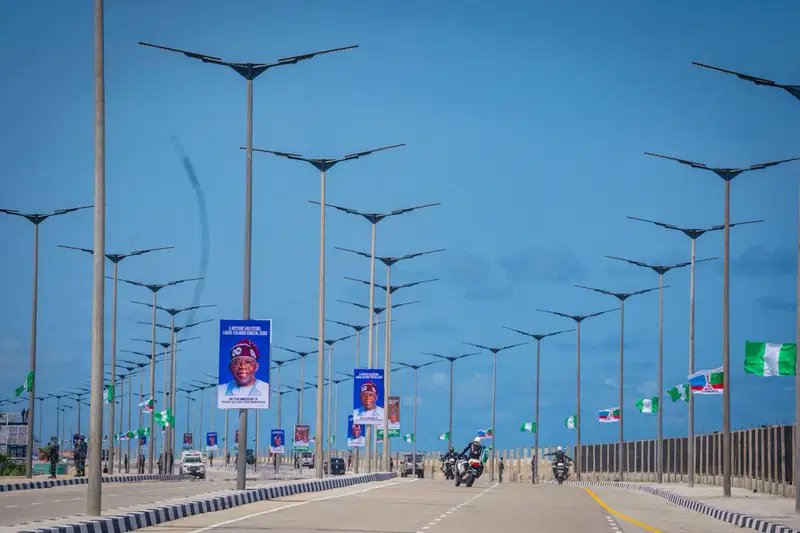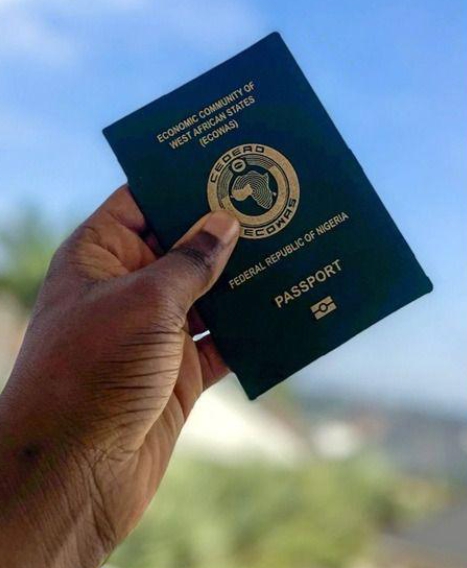
Patriotic Nigerians Reacts as FG Secures another $747 Million Loan for Lagos–Calabar Highway

In what may go down as one of the boldest moves in Nigeria’s infrastructure development history, the Federal Government has secured a staggering $747 million loan to fund Phase 1, Section 1 of the controversial Lagos-Calabar Coastal Highway.
The deal, announced by the Federal Ministry of Finance, is being hailed as a landmark financial arrangement—one that could either catapult the nation’s infrastructure future or deepen its debt trench.
Deutsche Bank, acting as the global coordinator, initial mandated lead arranger, and bookrunner, has led the charge, organizing a multi-bank syndicate that reads like a who’s who of global finance. Among the lineup are First Abu Dhabi Bank, Afreximbank, Nexent Bank N.V., ECOWAS Bank for Investment and Development, Abu Dhabi Exports Office, and Zenith Bank with operations spread across Nigeria, Paris, and London. It’s not just capital—they’re bringing political and commercial risk insurance too, courtesy of the Islamic Corporation for the Insurance of Investment & Export Credit (ICIEC).
The loan is earmarked specifically for the 47.47 km stretch from Victoria Island to Eleko Village—a critical section that’s reportedly already over 70% completed. But make no mistake: this isn’t just about asphalt and concrete.
The coastal highway is envisioned as a 700 km economic artery slicing through nine southern states, expected to revolutionize trade routes, unlock tourism zones, and stimulate cross-border business across West Africa.
In its current phase, the project will be executed under an EPC+F model—Engineering, Procurement, Construction plus Financing—by Hitech Construction Company, a firm whose connections to political power have stirred quiet but persistent murmurs. Yet, supporters of the project argue that beyond political affiliations, Nigeria needs roads that last—not slogans that fade. To that end, the road is being built with Continuously Reinforced Concrete Pavement (CRCP), promising a life span of at least 50 years with minimal maintenance.
This $747 million tranche is just the beginning. The total project is projected to cost up to $12 billion, and while the debt profile raises eyebrows, FG officials insist it’s a worthy trade-off for long-term gain. Finance Minister Wale Edun praised the arrangement as a win for economic reform, calling it “a sign that international capital is once again confident in Nigeria’s direction.” He also described the coastal highway as “a model for PPP-led infrastructure” that aligns with the Tinubu administration’s push for structural transformation.
Works Minister David Umahi, never one to shy from headlines, called it “proof that Nigeria is ready to build to last.” He emphasized the project’s environmental clearance, citing completed Environmental and Social Impact Assessments and a plan to manage sensitive coastal ecosystems—though environmentalists remain cautiously skeptical.
Critics, including some lawmakers and civic groups, say the loan-to-project pipeline has lacked transparency. They question whether Nigeria should be taking on a massive debt in the midst of rising inflation, naira depreciation, and spiraling fuel prices. Others ask why such a grand project is concentrated in one region while federal roads across the North and Middle Belt remain death traps.
There are also calls for a transparent tolling strategy once the road becomes operational. FG has hinted at a Public-Private Revenue Model that ensures long-term maintenance and investment return—but no official toll rates or concession terms have been disclosed. That silence is drawing concern from fiscal watchdogs who want to know whether the average Nigerian motorist will foot the repayment bill.
Yet, the project carries massive economic potential. If executed properly, the Lagos-Calabar Highway could reduce transport costs by up to 40%, according to early projections. It could spark new industrial zones, logistics parks, and beachside tourism corridors. For the local economies along the corridor—from Ondo to Rivers and down to Cross River—the ripple effect could be seismic.
The international community is watching closely too. The involvement of Deutsche Bank and Middle Eastern financiers shows growing interest in African infrastructure—especially when structured with credit risk protections and performance guarantees.
Still, the real test isn’t in the press releases. It’s in the delivery.
Nigerians have seen too many groundbreaking ceremonies become graveyards of public trust. If this highway stalls, delays, or collapses under political infighting, it won’t just cost money—it’ll cost credibility.
But if completed as promised, the Lagos-Calabar Coastal Highway may do more than connect states. It could be the road that finally connects vision to reality in Nigeria’s long and winding development journey.
For now, the bulldozers are humming, the concrete is curing—and the nation is watching every step.


